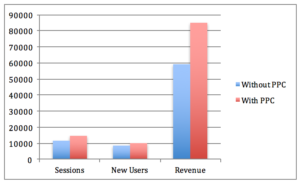Your Guide To Facebook Ad’s "Learning Limited" & How To Beat It
It seems like each week Facebook is releasing new updates to their ads platform, stronger guidelines to protect user privacy, and more optimization capabilities than ever before. If you are a fellow advertiser on Facebook, you are no stranger to A/B testing and the never-ending journey of finding the optimal targeting, ad copy, imagery, and headline combinations.
However, the quest for continuous improvement could also be leading to the demise of your Facebook ad performance. Enter: the Facebook Learning Phase.
What is the Learning Phase In Facebook Ads?
The Facebook Learning Phase is the time period where Facebook is using its machine learning capabilities to optimize your results. This is achieved by Facebook showing your ads to different audiences, at different times of day, and within different ad placements to determine the optimal delivery system.
Facebook has a lot to learn about new ads, and during this Learning Phase Facebook performance is not considered stable. It’s recommended that Facebook advertisers spend no more than 20% of their budget in the learning phase, as those ads usually encounter a higher CPA.
When Does the Facebook Learning Phase Occur and How Can You Exit?
The Facebook Learning Phase occurs whenever a new adset is created or a significant edit has been made. Edits that will force your ad sets into the Learning Phase are listed below.
Campaign
- New campaign
- Budget
- Bid amount
- Bid strategy
Ad sets
- Targeting
- Placement
- Optimization event
- Adding new creative
- Bid strategy
- Bid amount
- Budget
- Pausing for over 7 days
Ads
- Any change (imagery, copy, URL, etc.)
When Will Your Ad Set Exit the Learning Phase In Facebook Ads?
Once your Facebook ad set performance is considered stable, you will exit the Learning Phase. Stable performance generally means that your ad set has received around 50 optimization events within a 7-day period. Your optimization event will depend on what you have set at the ad set level. This could be 50 purchases, 50 leads, 50 landing page views, 50 add-to-carts, etc. Whichever one you choose, your optimization event should be congruent with your performance goals.
If your Facebook ad sets don’t generate enough optimization events within that 7-day period they will be launched into the dreaded Learning Limited phase.
What Does it Mean to be Stuck in Facebook Ads’ Learning Limited?
When your Facebook ad sets are stuck in Learning Limited, it means you haven’t generated enough optimization events to exit the Learning Phase and become Active. For many advertisers, the Learning Limited Phase is a limbo that should be heavily avoided. Not only will your Facebook ads have a higher CPA, but they won’t be fully optimized toward the best-performing audiences and placements. When Facebook doesn’t have enough data, it can’t accurately predict the best ad placements and positioning which could make your performance suffer.
How To Fix Learning Limited in Facebook Ads
While the Learning Limited phase can be hard to exit, it’s not impossible. Facebook has outlined a few tips that could help catapult your ad sets into the active phase.
Tip 1 - Avoid Excessive Edits In Your Facebook Ads Campaigns
Making constant changes and edits to your Facebook Ads campaigns is easily the No. 1 mistake most advertisers make when it comes to being stuck in Learning Limited. Every time you make an edit, the system essentially has to start over. So while you think you are improving your campaigns by making optimizations, you are actually further delaying your exit from the Learning Phase and wasting valuable ad dollars.
However, this is not to say you should never optimize your Facebook campaigns and make edits. On the contrary, testing new creatives, ad copy, and targeting is how Facebook learns about your ad performance. Testing is essential to performance success. The key is to simply find the balance between making changes and letting your campaigns simmer.
At GCommerce, we are constantly optimizing our ads and running A/B tests, but last year we found that we were stuck in Learning Limited a lot. We discovered that the main cause was excessive editing. At this discovery we implemented new procedures to only edit campaigns once per week (in most cases) and with this change we quickly saw that we were able to exit the learning phase quicker.
Tip 2 - Combine Facebook Ad Sets
Are you running multiple ad sets within your Facebook Ads campaigns? This could be keeping you in Facebook’s Learning Limited. When too many ad sets are run at once they begin to take away from each other. This results in less deliveries for each ad set, longer time spent in the learning phase, and more budget spent on unstable ad sets.
Instead, if you are running multiple ad sets with similar targeting or audiences, Facebook recommends combining these into one ad set with a larger budget and audience to deliver to. Larger audiences will give Facebook more options for delivery which can help you exit the learning phase and Learning Limited much quicker.
If you are unable to combine ad sets, try increasing your current audience size by adding in more interests, geographical locations, or other targeting capabilities or taking away harsh parameters that might be restricting your deliverability.
Tip 3 - Increase Facebook Ad Campaign Budget
While this option is certainly not always an option, the number one recommendation to remove your ad sets from the Learning Limited phase is to increase your Facebook budgets by at least 25%. Most advertisers don’t have the ability to increase budgets at whim, but if you are able to this can help with exiting the Learning Limited phase.
Tip 4 - Change The Facebook Ads Campaign Optimization Event
If you’ve tried all the tips above, you could consider changing the event you are optimizing for altogether. If you are optimizing for purchases, but can’t get 50 purchases in a 7-day period, try changing that event to something higher up in the funnel like initiates check-out or add-to-cart. The further down the booking funnel you go, the lower your conversion events will be. Changing to a higher-funnel event will allow you to generate enough events to exit the Learning Limited phase. Note that you cannot change the optimization event on a published Facebook ad set, you will need to duplicate your existing ad set for this.
Final Takeaways on Facebook’s Learning Phase & Learning Limited
We’ve covered a lot in this blog post, and managing the Facebook Learning Phase and Learning Limited can be overwhelming for a lot of advertisers. There is no right way to create success with your Facebook campaigns. Ultimately you need to evaluate your own campaign performance and define what success means to you. It’s important to also take these Facebook phases with a grain of salt; you might be stuck in Learning Limited, but maybe your performance is the best it’s ever been and you are showing a high ROAS. It’s very possible to maintain successful campaigns without being fully optimized and stable.
Let the experts at GCommerce help get your Facebook advertising to where it needs to be. Connect with us today for more information!





